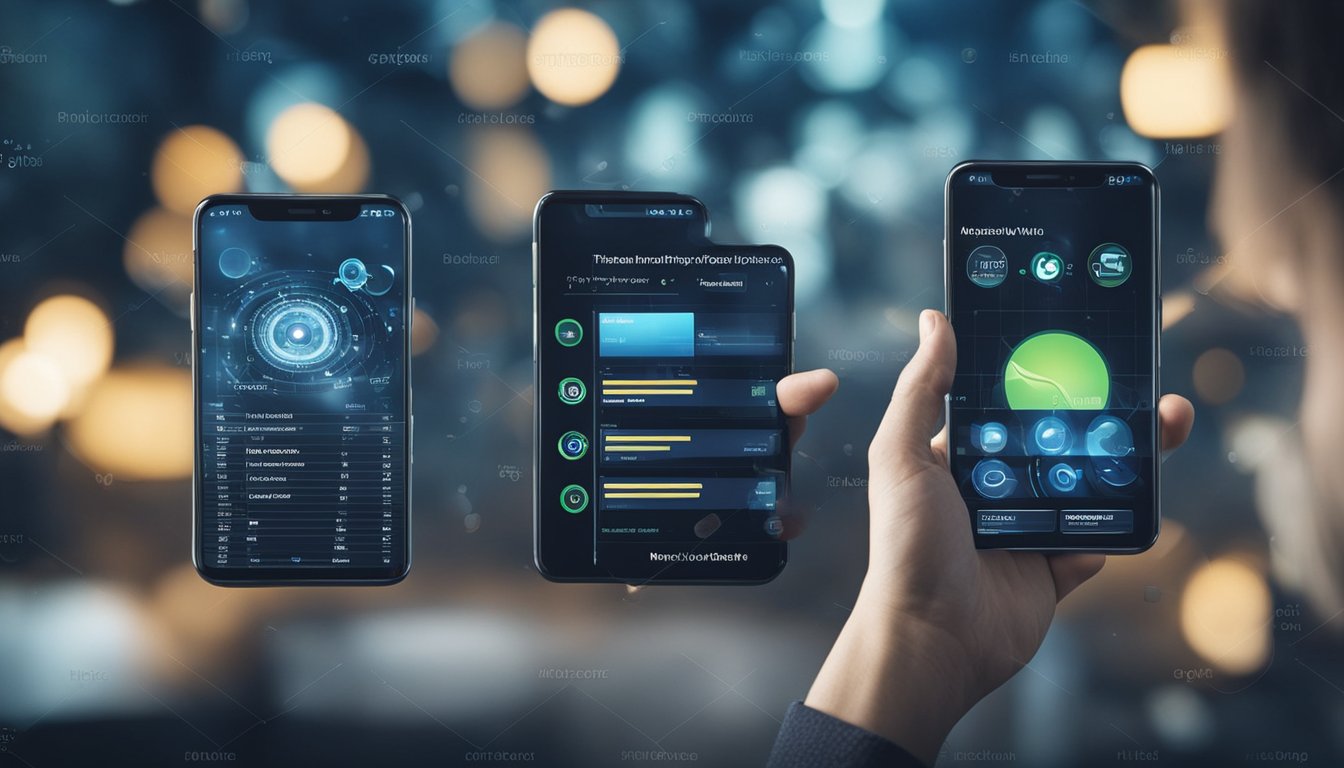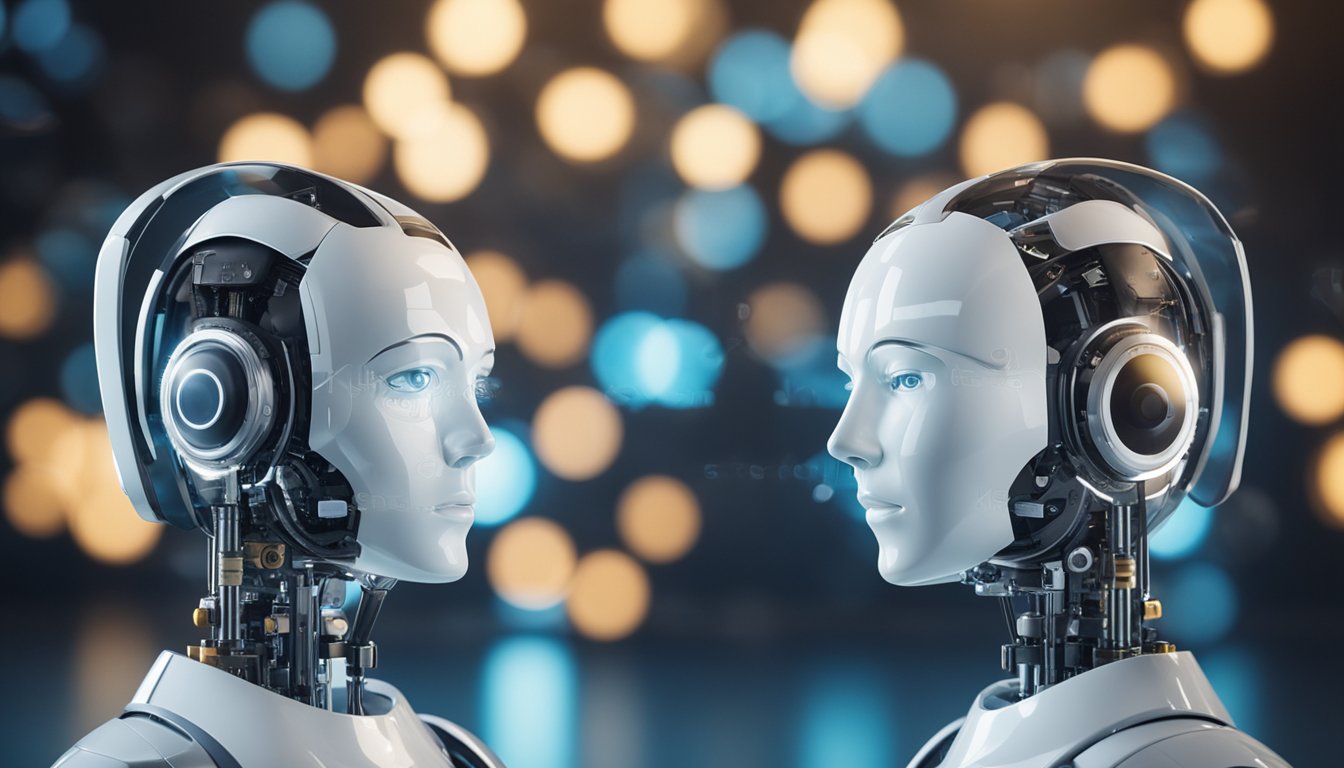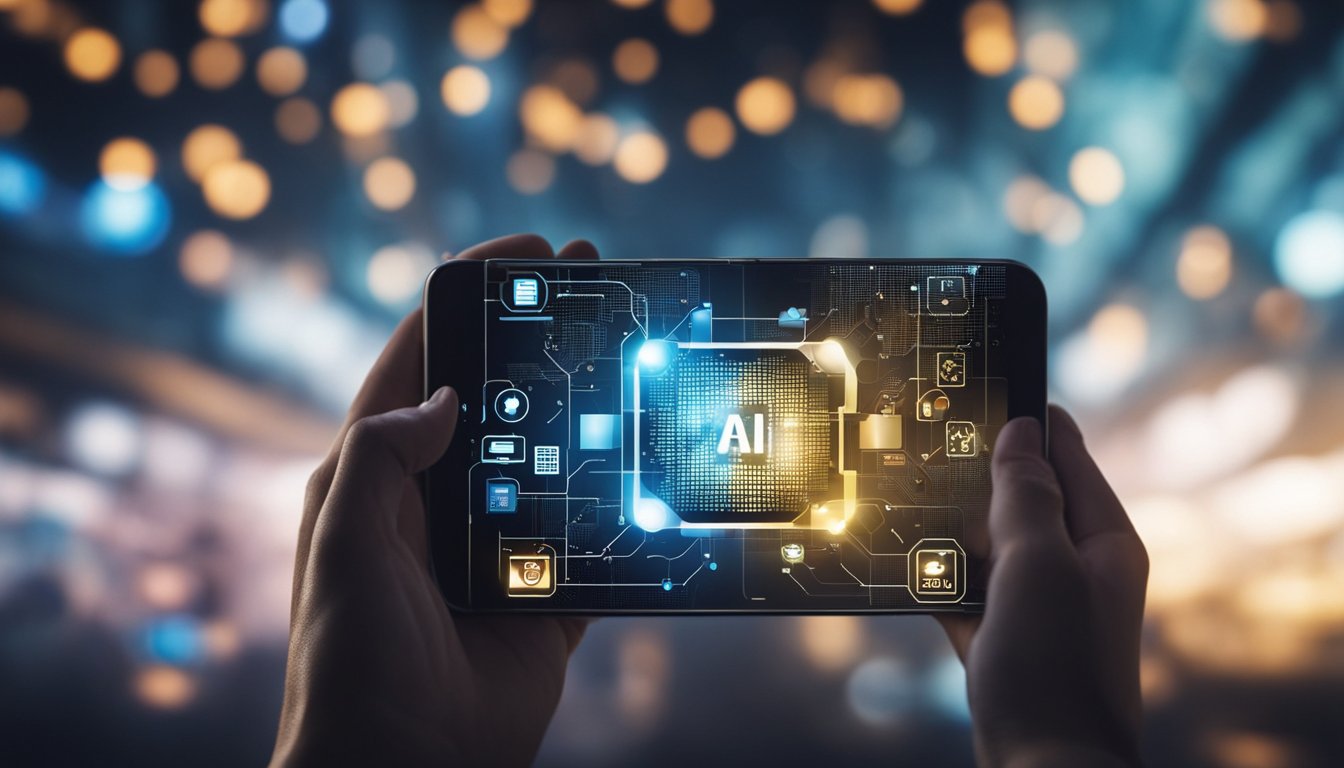Role of Artificial Intelligence in Mobile App Development
Artificial intelligence (AI) has become an integral part of mobile app development in recent years. AI is a technology that enables mobile apps to learn from user behavior and provide personalized experiences. The integration of AI in mobile app development has revolutionized the way we interact with our smartphones and has opened up new possibilities for businesses to engage with their customers.

The impact of AI on mobile app development has been significant. AI technologies such as machine learning, natural language processing, and computer vision have enabled mobile apps to become more intelligent and responsive to user needs. AI-powered mobile apps can now recognize speech, understand natural language, and even analyze images and videos. This has led to the development of new types of mobile apps that were not possible before, such as virtual assistants, chatbots, and augmented reality apps.
Key Takeaways
- AI has become an integral part of mobile app development, enabling mobile apps to learn from user behavior and provide personalized experiences.
- The impact of AI on mobile app development has been significant, with AI technologies such as machine learning, natural language processing, and computer vision enabling mobile apps to become more intelligent and responsive to user needs.
- AI-powered mobile apps can recognize speech, understand natural language, and analyze images and videos, leading to the development of new types of mobile apps such as virtual assistants, chatbots, and augmented reality apps.
The Impact of AI on Mobile App Development

As a mobile app developer, I have witnessed the significant impact of Artificial Intelligence (AI) on the mobile app development industry. AI has revolutionized the way mobile apps are designed, developed, and used. In this section, I will discuss the impact of AI on mobile app development, focusing on how it enhances user experience and security considerations.
Enhancing User Experience
AI has transformed the way mobile apps interact with users. By leveraging machine learning algorithms, mobile apps can now tailor app interactions to individual users' preferences, providing them with a more personalized experience. This personalization increases user engagement, leading to higher retention rates and increased revenue for app developers.
AI-powered chatbots, for instance, have become a popular feature in mobile apps. Chatbots use natural language processing (NLP) to understand user queries and provide relevant responses. This feature enhances the user experience by providing quick and accurate responses to user queries.
Moreover, AI-powered recommendation engines have made it easier for users to discover new content. These engines analyze user data and provide personalized recommendations based on their preferences, increasing the likelihood of users engaging with the app.
Security Considerations
App security is a top priority for mobile app developers. AI has played a significant role in enhancing app security by providing developers with tools to detect and prevent security breaches. AI algorithms can analyze user data to detect anomalies and potential security threats, enabling developers to take proactive measures to prevent security breaches.
AI-powered authentication and authorization mechanisms have also become popular in mobile app development. These mechanisms use biometric data, such as facial recognition and fingerprint scanning, to authenticate users, providing enhanced security to user data.
However, while AI has enhanced app security, it has also raised concerns about data privacy. Developers must ensure that user data is protected and that AI algorithms are transparent and ethical.
In conclusion, AI has transformed the mobile app development industry, providing developers with tools to enhance user experience and app security. As a developer, I believe that AI will continue to play a significant role in the future of mobile app development.
AI Technologies in Mobile App Development

As AI continues to revolutionize the tech industry, it has also made its way into mobile app development. AI technologies are being used to enhance user experience and improve app functionality. Here are some of the most popular AI technologies being used in mobile app development today:
Machine Learning and Predictive Analytics
Machine learning algorithms are being used to analyze user behavior and provide personalized app experiences. Predictive analytics can also be used to recommend products and services based on a user's previous actions. This technology is especially useful for e-commerce apps, where personalized recommendations can increase sales.
Natural Language Processing and Voice Recognition
Natural language processing (NLP) is being used to enable voice recognition in mobile apps. This technology allows users to interact with apps using their voice, which can be especially useful for hands-free tasks. Popular virtual assistants like Siri, Alexa, and Google Assistant use NLP to understand and respond to user requests.
Image and Facial Recognition
Image and facial recognition technology is being used to enhance security in mobile apps. This technology can be used to verify a user's identity, which can be especially useful for banking and finance apps. It can also be used to provide personalized experiences, such as identifying a user's favorite products based on their facial features.
Overall, AI technologies are transforming the mobile app development industry by providing personalized experiences and improving app functionality. By incorporating these AI technologies into mobile apps, developers can provide a seamless and intuitive user experience.
Personalization and Automation in Mobile Apps

As AI technology continues to evolve, it is becoming increasingly important for mobile app developers to incorporate it into their products. One of the most significant benefits of AI in mobile app development is the ability to deliver personalized experiences to users.
Delivering Personalized Experiences
Personalization is the process of tailoring an app's features and content to the specific needs and preferences of individual users. By leveraging AI algorithms, developers can analyze user data to create accurate user profiles, which, in turn, enables apps to deliver personalized recommendations and experiences.
For example, a music streaming app can use AI to analyze a user's listening history and create customized playlists based on their preferences. Similarly, a news app can use AI to analyze a user's reading habits and suggest articles that are more likely to be of interest to them.
By delivering personalized experiences, apps can increase user engagement and satisfaction. According to a report by Youappi, mobile applications integrating AI-driven personalization are witnessing an average 200% increase in user engagement.
Automation and Productivity
Another significant benefit of AI in mobile app development is automation. AI-powered tools can automate various tasks, such as content creation, data analysis, and customer support, resulting in increased productivity and reduced costs.
For example, AI-powered chatbots can provide 24/7 customer support, freeing up human agents to focus on more complex tasks. Similarly, AI-powered content creation tools can analyze user data to create personalized content, reducing the time and effort required by human content creators.
Automation can also help improve app functionality. For example, AI-powered notifications can be used to remind users about upcoming appointments or events, reducing the likelihood of missed deadlines.
In conclusion, incorporating AI into mobile app development can deliver personalized user experiences and increase productivity through automation. By leveraging AI algorithms, developers can analyze user behavior to provide personalized recommendations and content, resulting in better user engagement and satisfaction. Additionally, automation can help reduce costs and improve app functionality, resulting in a better overall user experience.
AI Integration in Various Sectors

As AI continues to evolve and advance, it is becoming increasingly integrated into various sectors, including healthcare, retail, e-commerce, and gaming. Here are some of the ways AI is being used in these sectors:
AI in Healthcare Apps
AI is being used in healthcare apps to improve the accuracy of diagnoses, provide personalized treatment recommendations, and assist with patient monitoring. For example, AI-powered chatbots can provide patients with quick and accurate answers to their medical questions, while machine learning algorithms can analyze large amounts of patient data to identify patterns and make predictions about patient outcomes.
AI in Retail and E-commerce
In the retail and e-commerce sectors, AI is being used to improve the customer experience, streamline operations, and increase sales. For example, AI-powered chatbots can assist customers with their purchases, while machine learning algorithms can analyze customer data to provide personalized product recommendations. AI can also be used to optimize pricing, inventory management, and supply chain logistics.
AI in Gaming
AI is being used in the gaming industry to enhance gameplay, improve player engagement, and create more immersive experiences. For example, AI-powered NPCs (non-player characters) can provide more realistic and dynamic interactions with players, while machine learning algorithms can analyze player behavior to personalize the gaming experience. AI can also be used to create more advanced and realistic graphics, as well as to optimize game performance.
Overall, AI integration is transforming various sectors and driving innovation and problem-solving. As AI continues to advance, we can expect to see even more exciting developments in the future, particularly in areas such as AR/VR, IoT, and content creation.
Frequently Asked Questions

What are some benefits of integrating AI technology into mobile app development?
Integrating AI technology into mobile app development can provide several benefits. AI can help improve the user experience by providing personalized recommendations and suggestions based on user behavior and preferences. It can also automate routine tasks, such as data entry and analysis, which can save time and reduce errors. Additionally, AI can help improve app security by detecting and preventing fraud and cyber attacks.
How does AI impact the role of developers in mobile app development?
AI can change the role of developers in mobile app development by automating routine tasks, such as testing and debugging. This allows developers to focus on more complex tasks, such as designing and implementing new features. AI can also help developers identify and fix bugs more quickly, which can improve the overall quality of the app.
What are some examples of successful AI-based Android projects?
Some successful AI-based Android projects include Google Assistant, which uses natural language processing to provide personalized assistance to users, and SwiftKey, which uses machine learning to predict and suggest words as users type. Another example is Prisma, which uses AI to apply artistic filters to photos.
What are some popular app development software options for beginners looking to integrate AI?
Some popular app development software options for beginners looking to integrate AI include TensorFlow, Keras, and PyTorch. These frameworks provide pre-built machine learning models and tools that can be easily integrated into mobile apps.
What are the top 5 applications of AI in mobile apps?
The top 5 applications of AI in mobile apps include personalization, predictive analytics, natural language processing, image and speech recognition, and chatbots. These applications can help improve the user experience by providing personalized recommendations and assistance, automating routine tasks, and improving app security.
What are some free AI app builders available for developers?
Some free AI app builders available for developers include Dialogflow, Wit.ai, and IBM Watson. These platforms provide pre-built machine learning models and tools that can be easily integrated into mobile apps, and they offer free plans for developers to get started with AI development.

We are committed to delivering a new level of automation that will help organizations save time, money, and staffing resources.
 WRITE FOR US!
WRITE FOR US!
